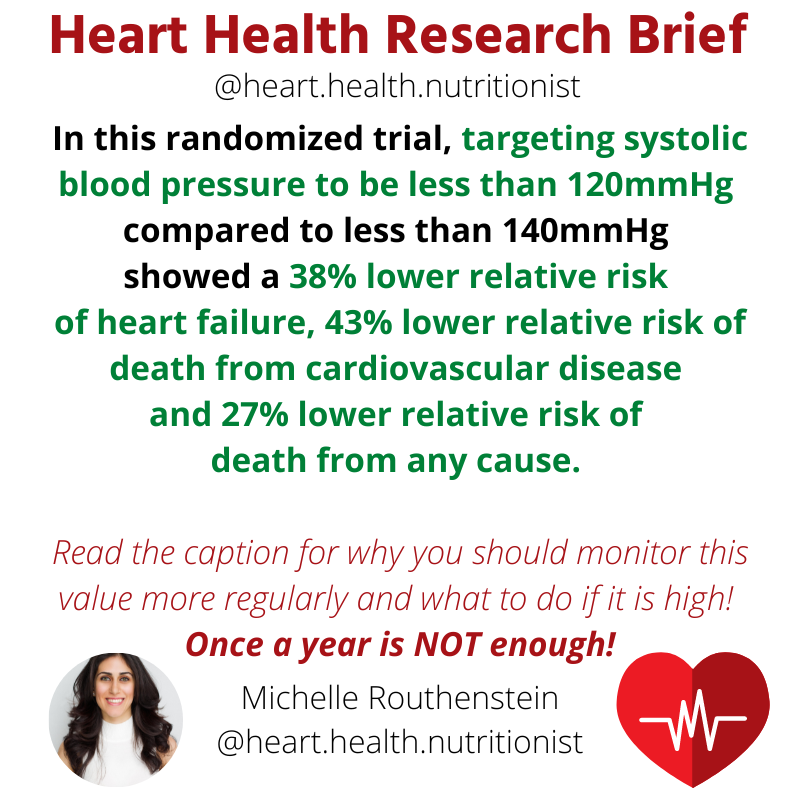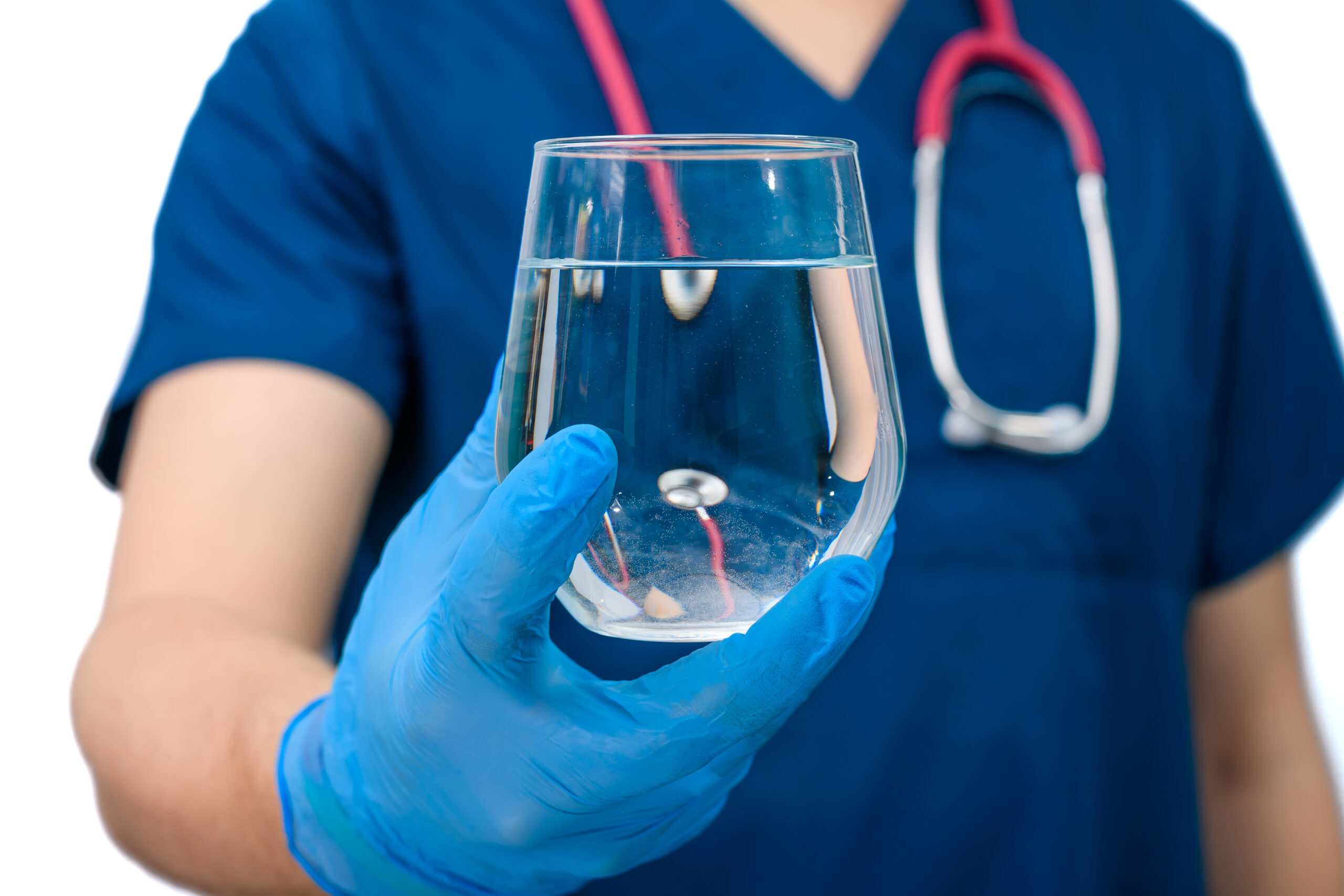Some surveys estimate that 75% of Americans are chronically dehydrated. Common symptoms of dehydration include thirst, dry mouth, brain fog, fatigue, dizziness, or having urine that’s darker in color than normal. When it’s not addressed, dehydration can become severe and even pose life-threatening risks.
Dehydration occurs when your body doesn’t have enough fluids. It can result from both not consuming enough fluids from foods and beverages, as well as losing bodily fluids — through things like using the bathroom and sweating through a good workout — at a faster rate than they’re being replaced. But can other less obvious things also contribute to dehydration? For instance, can hypertension cause dehydration (or vice versa)?
Let’s explore the link between dehydration and blood pressure, including whether one can cause the other and tips for maintaining hydration.
Can Hypertension Cause Dehydration?
To answer this question, we first need to explore the relationship between your hydration status and your blood pressure levels.
Blood pressure is how forcefully your blood moves through your veins and arteries, and how much pressure it places on the walls of your circulatory system.
It can be influenced by a variety of things, including your hydration status. When you’re dehydrated, your blood pressure can go either up or down. I don’t find that many people experience symptoms typically associated with dehydration — like extreme thirst and dry mouth — unless they’re severely dehydrated. You may not notice changes in your blood pressure either.
You’ve probably heard that a blood pressure goal of 120/80 mm Hg is considered to be normal and healthy for most people. However, an optimal reading is 110/70 mm Hg.
The top number refers to your systolic blood pressure, which indicates the pressure your blood is placing on your artery walls during heartbeats. The bottom number refers to your diastolic blood pressure, which indicates the pressure your blood is placing on your artery walls when your heart is at rest, or between beats.
A low blood pressure reading is typically anything below 90/60 mm Hg. When you’re dehydrated, this can lead to a reduction in total blood volume, which in turn reduces how much force your blood is exerting on your arteries. Left untreated, this becomes dangerous because having low blood volume means your organs won’t receive the nutrients and oxygen they need to survive. This could ultimately lead to shock.
A high blood pressure reading is above 120/80 mm Hg, but medication may be started once it reaches 140/90 mm Hg. While the mechanism is less intuitive, being dehydrated can also raise blood pressure levels. It appears to be related to dehydration-induced changes in the secretion of a hormone called vasopressin.

So, can hypertension cause dehydration? Not directly, but there are some connections between the two:
- Medications: Many people with hypertension take medications for it, like diuretics (often called “water pills”), which help lower blood pressure by removing excess fluid and salt from the body. These medications can increase urine output and potentially lead to dehydration if fluid intake is not adequately maintained.
- Lifestyle factors: People with hypertension are often advised to reduce salt intake and increase physical activity to help manage it through lifestyle. However, excessive exercise without adequate hydration can lead to dehydration.
- Underlying health conditions: Some underlying conditions that cause hypertension, like kidney disease, can also affect fluid balance in the body, potentially leading to dehydration.
Beverages and Blood Pressure Medications
Some hydrating beverages, particularly herbal teas, have been found to naturally lower blood pressure. This can be helpful to a degree but can cause blood pressure to drop too much if you’re also taking medications intended to lower blood pressure.
For instance, research has found that drinking daily hibiscus tea — even in doses of 10 grams of hibiscus per 0.5 Liters — can lower blood pressure both among people who are and are not taking medication.
In one meta-analysis including 24 studies, researchers found that green tea could also significantly lower systolic and diastolic blood pressure in short-term trials. Even doses of 120 mL (a half cup) per day of green or oolong tea have had this effect when people are drinking it regularly over a long period.
Other research has found that 3 cups of black tea per day is also effective for lowering blood pressure when people are drinking it consistently for at least 6 months.
This doesn’t mean you should stop drinking your favorite teas if you use blood pressure medications, but it does mean it’s important to monitor your blood pressure closely to make sure it stays within a healthy range.
Many people enjoy juicing as a great way to boost antioxidant-rich fruit and vegetable intake, stay hydrated, and support healthy blood pressure levels. This is also a way to avoid the high sodium content often found in store-bought juices and processed foods. If you’re juicing at home, a slow juicer may be helpful to retain the most nutrients and flavor. (I recommend Hurom brand juicers. Check them out using my affiliate link.)
For more on what to drink with hypertension, see my article on high blood pressure and beverages.
Will Dehydration Cause High Blood Pressure?
Does hydration affect blood pressure? Yes. In short, dehydration can lead to low blood pressure. When you’re well-hydrated, your body has enough fluid to maintain normal blood pressure levels.
Here’s how that works.
Vasopressin is a pituitary hormone released to increase blood pressure and promote water retention by your kidneys, instead of losing it through urine excretion. When you’re dehydrated, more vasopressin is secreted in an attempt to rebalance fluid and blood pressure levels.
Why does this increase blood pressure? Vasopressin can make your blood vessels constrict, which consequently reduces the space through which your blood is circulating and increases its force on arterial walls.
How Much Fluid Do I Need?
Daily fluid needs vary between individuals because they depend on unique factors like how old you are, your sex, existing health conditions, any medications you’re taking, your activity level, and whether you’re pregnant or breastfeeding.
According to the Mayo Clinic and the U.S. National Academies of Sciences, Engineering, and Medicine, a general rule of thumb is to aim for:
- About 15.5 cups (3.7 liters) of fluids a day for men
- About 11.5 cups (2.7 liters) of fluids a day for women
Tips for Maintaining Hydration
To keep dehydration and hypertension at bay, it’s important to stay hydrated with healthy options. The best fluid for hydration is regular water. It can be helpful to fill a reusable water bottle to keep with you and sip during the day.
However, if you find that you’re getting sick of drinking plain water all the time, there are some ways to enhance its flavor and rotate in other hydrating beverages and foods.
Here’s how to stay hydrated without drinking water plain:
- Add fresh berries, lemon or lime wedges, or sliced cucumber
- Seltzer water with natural flavors
- Decaffeinated herbal teas
- Smoothies made with fruits and vegetables
- Low-sodium soup and broths
- Low sugar popsicles
Fresh produce, like melon, strawberries, salad greens, apples, and citrus fruits are also super hydrating. Watermelon and cucumbers also contain the amino acid L-citrulline, which can help lower blood pressure.
Do electrolytes hydrate you? Electrolytes are essential minerals (like sodium, potassium, calcium, and magnesium) that play a role in hydration but don’t hydrate you on their own. You’re unlikely to need electrolytes for hydration unless you lose large amounts of fluid regularly through sweaty workouts, diarrhea, vomiting, or living in a hot climate.
Dehydration and Hypertension: Wrapping Up
Dehydration is one cause of high blood pressure, but there may be other factors behind your hypertension. To better understand what’s going on with your body, consult with a registered dietitian who specializes in heart disease to help lower blood pressure and get off medications (as determined by your doctor). I’ve helped many people do just that.
When you schedule a 1:1 session, I can help personalize and cusotmized your nutrition and hydration plan for you to meet your health goals, like managing blood pressure and improving your cardiovascular function and health. If you want to learn more about how to improve your blood pressure in a group setting, consider joining my next 6 week heart optimization group program.
Sources
- Taylor K, Jones EB. Adult Dehydration. [Updated 2022 Oct 3]. In: StatPearls [Internet]. Treasure Island (FL): StatPearls Publishing; 2024 Jan-. Available from: https://www.ncbi.nlm.nih.gov/books/NBK555956/
- American Heart Association. (2024). Understanding Blood Pressure Readings. Retrieved from: https://www.heart.org/en/health-topics/high-blood-pressure/understanding-blood-pressure-readings
- Mahdavi-Roshan M, Salari A, Ghorbani Z, Ashouri A. The effects of regular consumption of green or black tea beverage on blood pressure in those with elevated blood pressure or hypertension: A systematic review and meta-analysis. Complement Ther Med. 2020;51:102430. doi:10.1016/j.ctim.2020.102430
- Jalalyazdi M, Ramezani J, Izadi-Moud A, Madani-Sani F, Shahlaei S, Ghiasi SS. Effect of hibiscus sabdariffa on blood pressure in patients with stage 1 hypertension. J Adv Pharm Technol Res. 2019;10(3):107-111. doi:10.4103/japtr.JAPTR_402_18
- Al-Anbaki M, Nogueira RC, Cavin AL, et al. Treating Uncontrolled Hypertension with Hibiscus sabdariffa When Standard Treatment Is Insufficient: Pilot Intervention. J Altern Complement Med. 2019;25(12):1200-1205. doi:10.1089/acm.2019.0220
- Xu R, Yang K, Ding J, Chen G. Effect of green tea supplementation on blood pressure: A systematic review and meta-analysis of randomized controlled trials. Medicine (Baltimore). 2020;99(6):e19047. doi:10.1097/MD.0000000000019047
- Li D, Wang R, Huang J, et al. Effects and Mechanisms of Tea Regulating Blood Pressure: Evidences and Promises. Nutrients. 2019;11(5):1115. Published 2019 May 18. doi:10.3390/nu11051115
- Mayo Clinic. (2023). Nutrition and healthy eating. Retrieved from: https://www.mayoclinic.org/healthy-lifestyle/nutrition-and-healthy-eating/basics/nutrition-basics/hlv-20049477
- Barkhidarian B, Khorshidi M, Shab-Bidar S, Hashemi B. Effects of L-citrulline supplementation on blood pressure: A systematic review and meta-analysis. Avicenna J Phytomed. 2019;9(1):10-20.
- Shrimanker I, Bhattarai S. Electrolytes. In: StatPearls. Treasure Island (FL): StatPearls Publishing; July 24, 2023.
